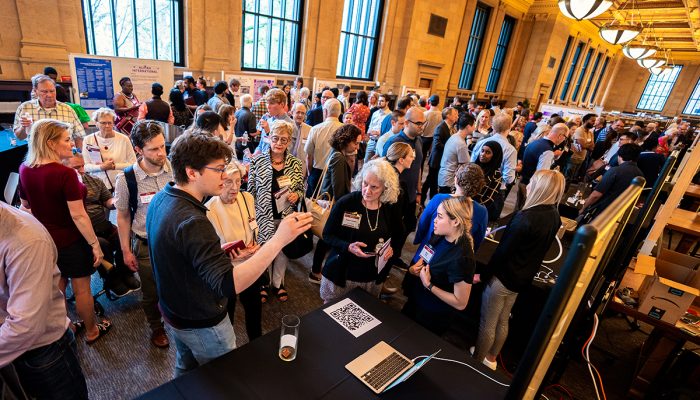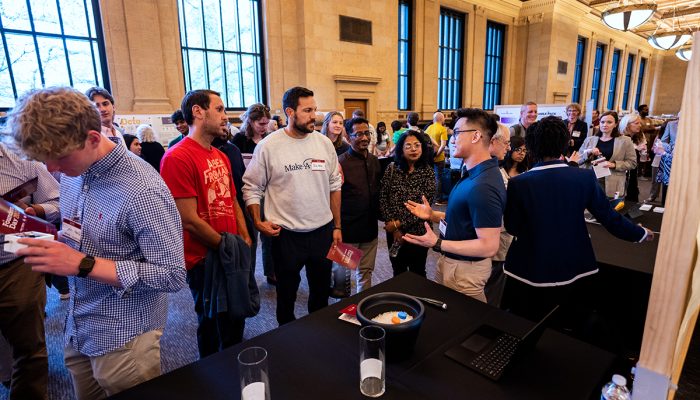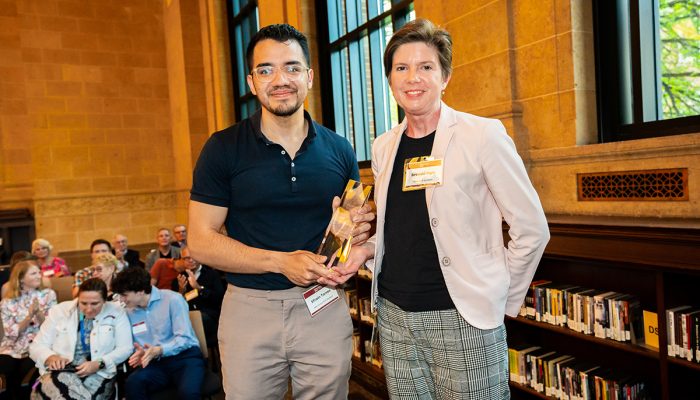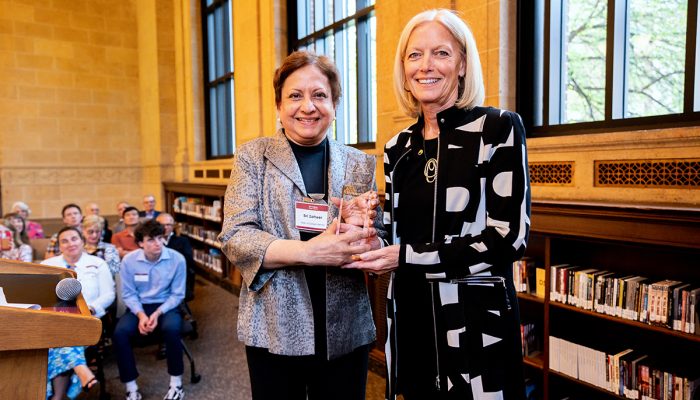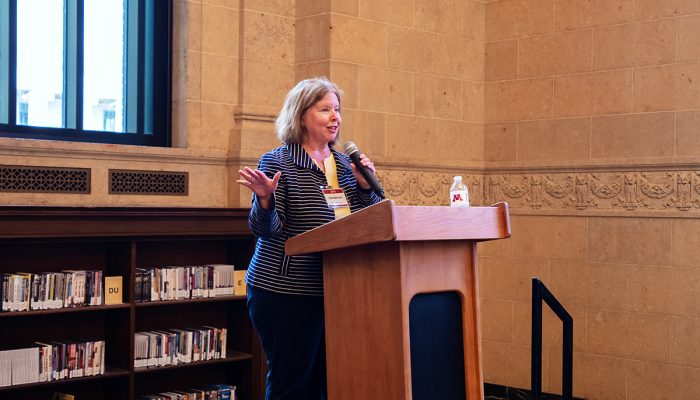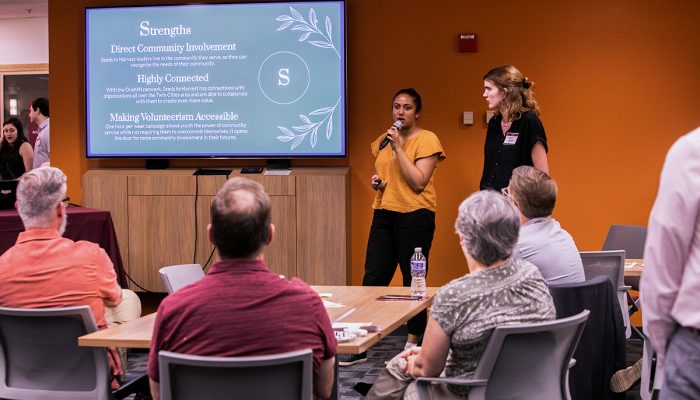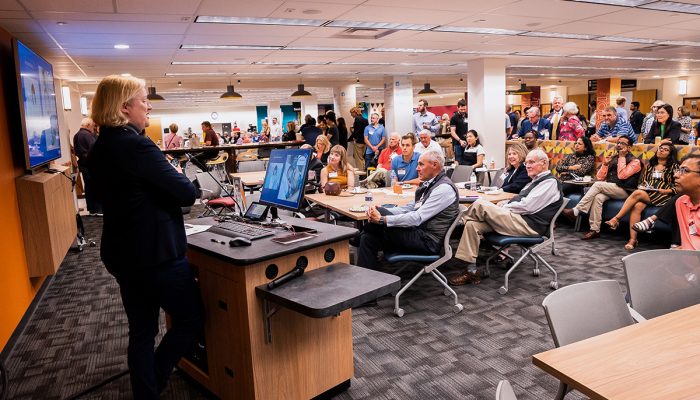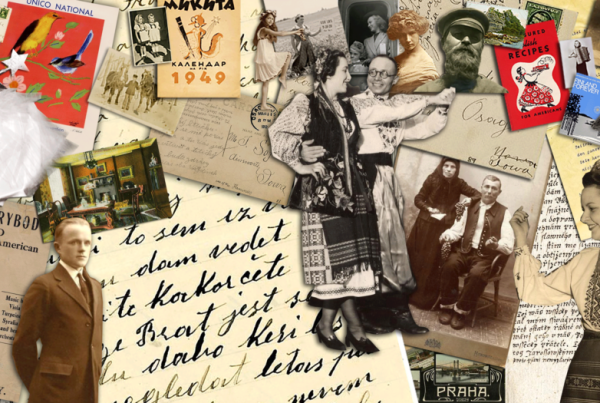Innovation was the $500 word at Walter Library on May 10. Attendees from across the University and beyond filled the building for the 11th annual Founders Day, a celebration of inspiration, innovation, and student entrepreneurship co-hosted by the University Libraries and the Holmes Center for Entrepreneurship.
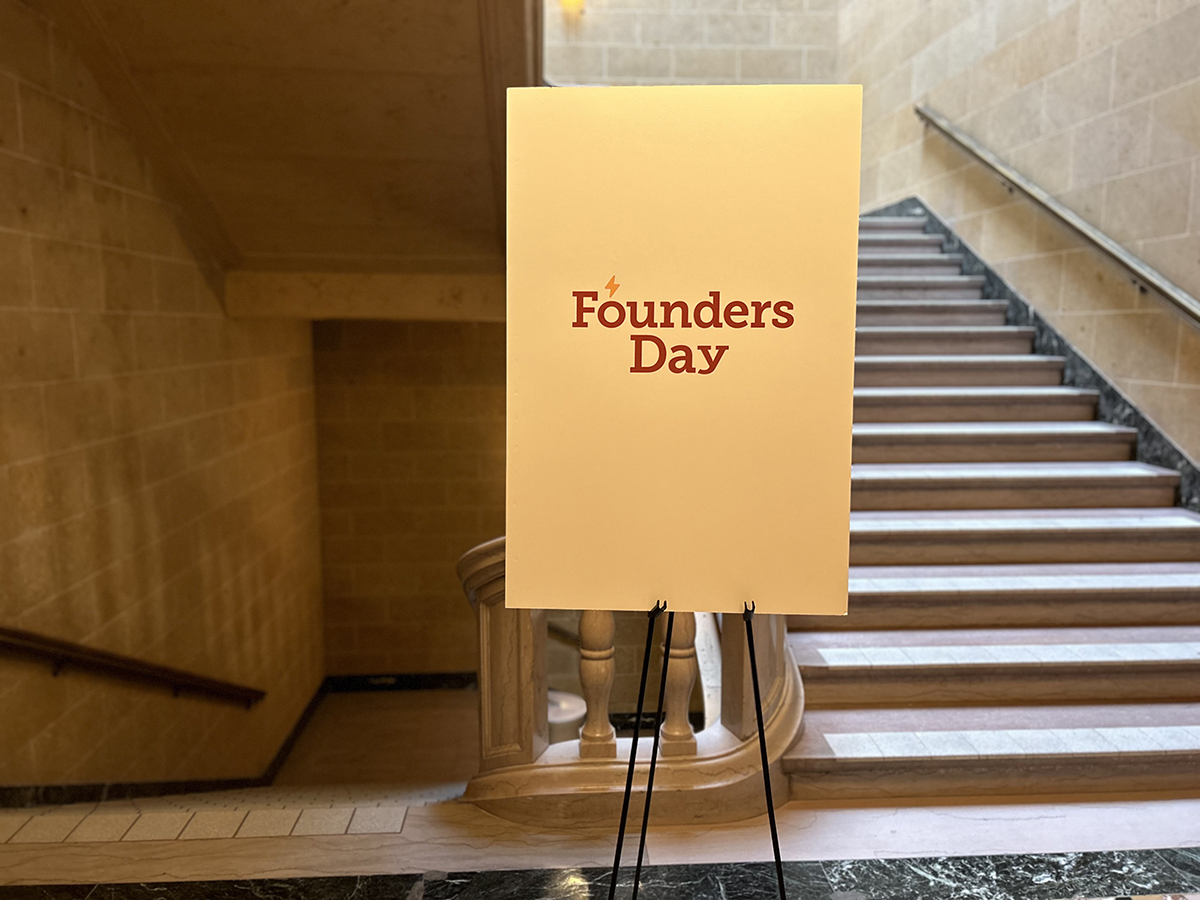
Over the course of the evening, some of the University of Minnesota’s most enterprising students had the opportunity to showcase their creative problem-solving at work. From a 3D-printed carb counting scale and app designed to help Type 1 diabetic children balance their diets to a custom bass fishing bait company founded by a student in an undergraduate CFANS course, Founders Day made one thing clear: U of M students are drawing upon the myriad resources available to them to design solutions to problems of all shapes and sizes.
In addition to showcasing students’ innovative achievements, the Founders Day program also honored some of the many entrepreneurs who have shaped the campus and Twin Cities communities.
Awards for the 2023 Entrepreneurs of Year were given in three categories: student, teacher, and alumnus. Efraín Torres (Ph.D. candidate in Biomedical Engineering), Toby Nord (Professional Director of Carlson Ventures Enterprise), and Joy Linsday (co-founder of Startec Investments and Sophia Fund) were honored, respectively.
MVP Challenge prototype demos
Turning ideas into reality was the animating goal of the MVP Challenge, a key feature of the Founders Day event. Short for “Minimum Viable Product,” an MVP is a tool to show customers and other stakeholders how an innovation could work and to get their feedback.
Seventy-five teams applied for this year’s MVP Challenge; of those applicants, 25 were selected for the MVP Challenge, and 21 showcased their projects at this year’s Founders Day.
Participants had the opportunity to attend monthly workshops leading up to Founders Day on topics such as prototyping basics and pitching — all skills that would prove essential on May 10, as teams demoed their projects and prototypes to guests and stakeholders at Walter Library for the chance to win one of three $500 prizes.
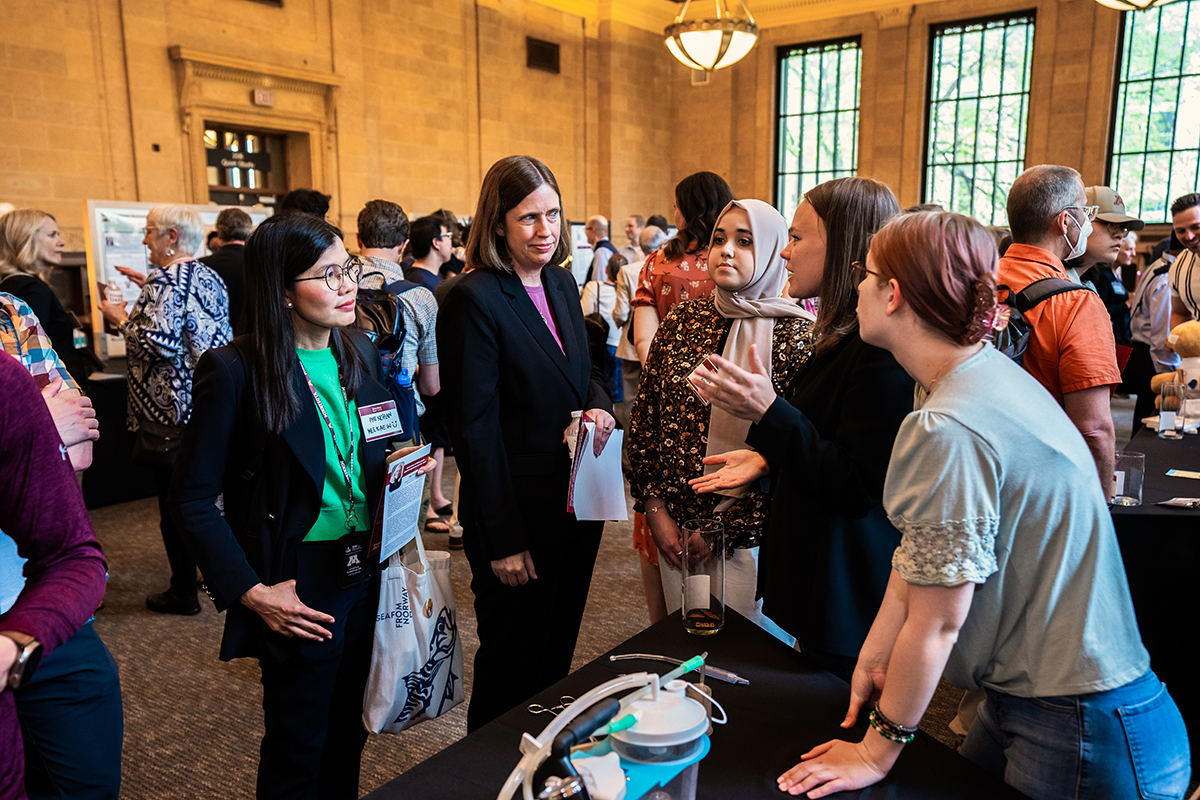
MVP Challenge participants present their project. Photo credit: Craig Bares Photography.
These monthly MVP workshops took place at the Toaster Innovation Hub, a multifaceted ideating space in the Walter Library basement that is, as this writer can attest, just about always thrumming with activity. At the Toaster, members of the U of M community can connect with each other while leveraging a range of resources, including study rooms, a maker space, and access to virtual reality technology and media production equipment and software.
Of the 25 MVP Challenge projects, several made use of resources at the Toaster and the University of Minnesota Libraries to bring their ideas to fruition.
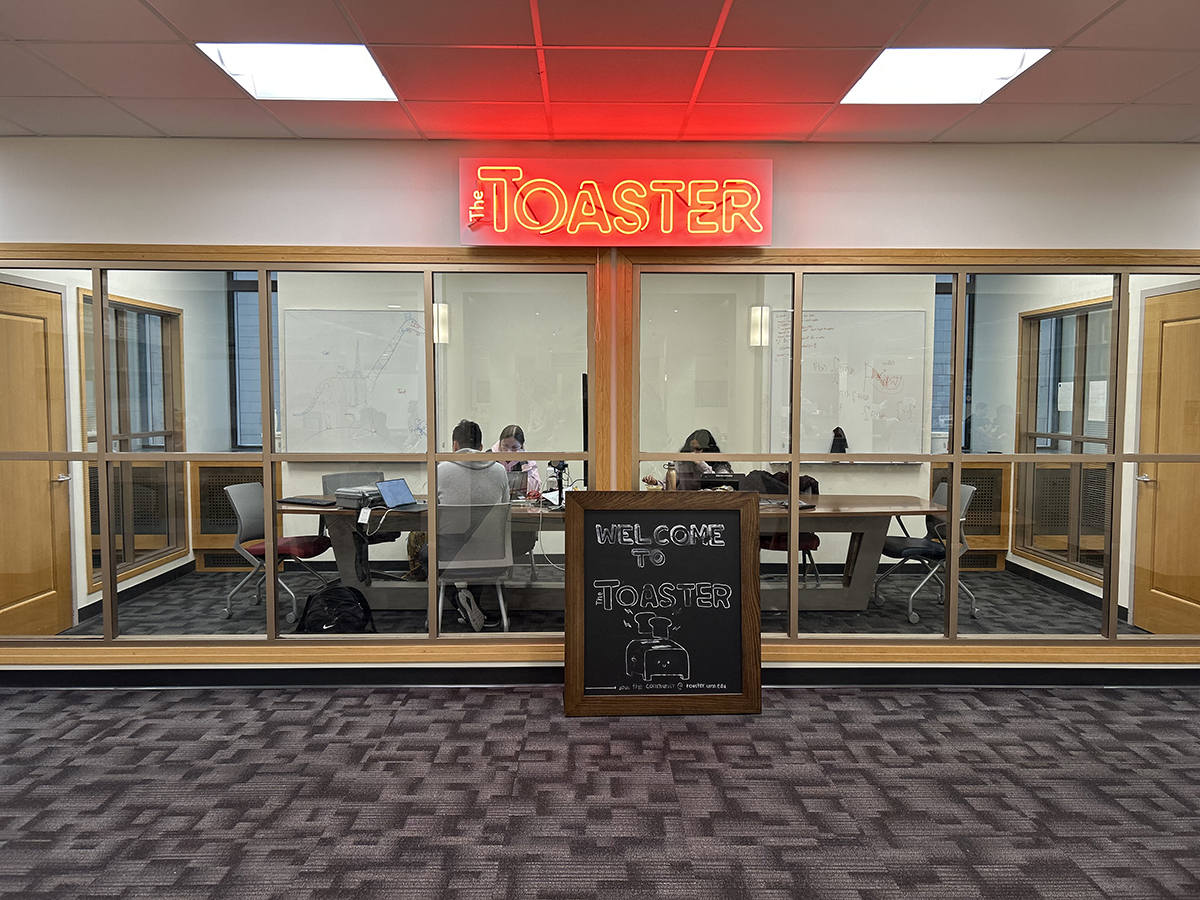
Transforming challenges into collective learning opportunities
Jackie Liu, Ph.D. candidate in Human Resource Development in the College of Education and Human Development, presented on her Global Youth Leader Development (GYLD) program, which aims to connect youth across the globe with online educational resources. GYLD is a holistic program that integrates individual and family learning as well as resources from global communities in order to explore a more collective approach for the sustainable development of individuals, families and communities.
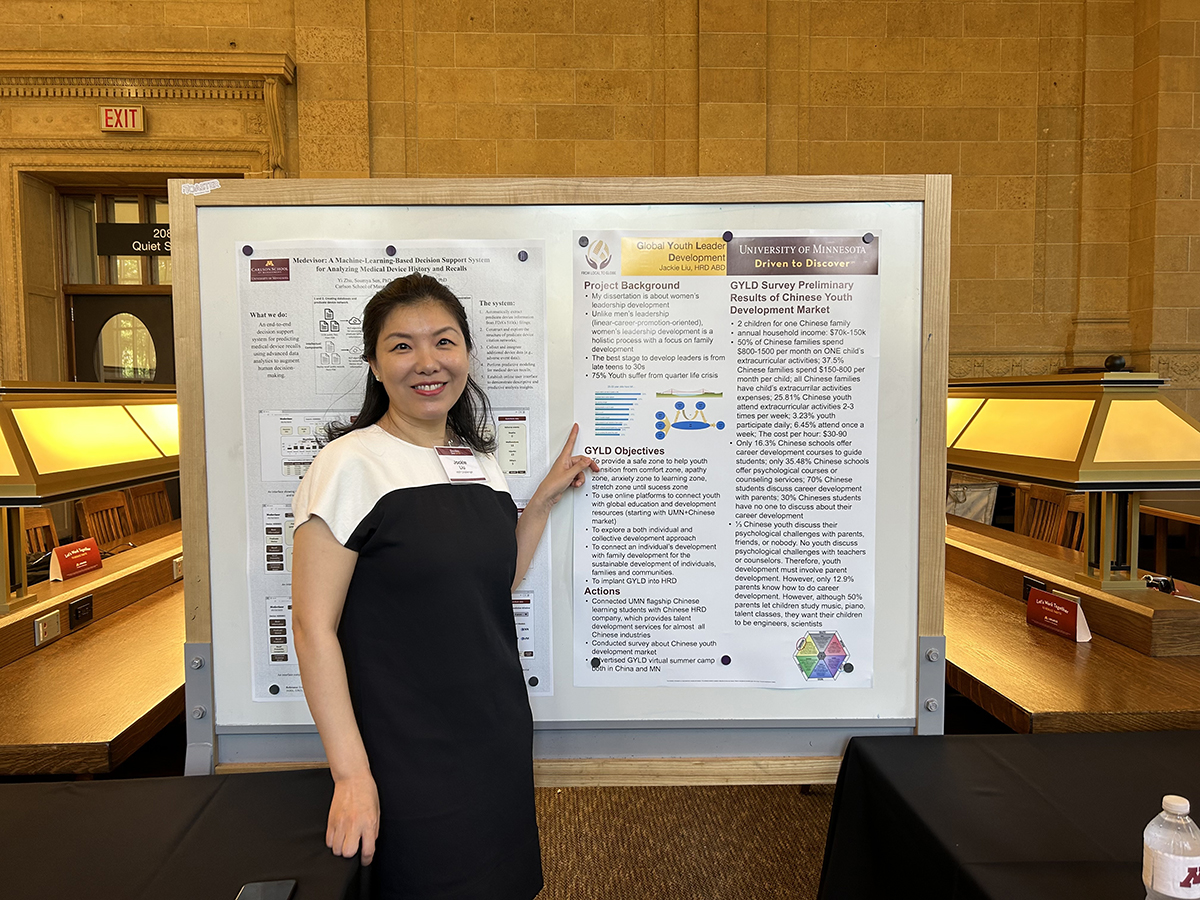
Jackie Liu. Photo credit: Katie Miller.
Liu received mentorship from the Toaster’s Innovation Outreach and Program Specialist, Erik Halaas, while working on her project. She emphasized the key role that Halaas and the Toaster played in her project development, especially in terms of technical and emotional support.
Halaas and the Toaster “gave me certainty during the many, many uncertain times,” Liu said. She hopes that other students on campus — many of whom might be tackling large-scale projects on their own — take advantage of the resources and collaboration opportunities at the Toaster.
“If you face the challenge with someone, you can work together to transform the challenge into learning opportunities for everyone,” she remarked.
Carlson School of Management 2023 DePodesta Fellow Enet Mukurazita, Ph.D. student in Comparative International Development Education, also participated in this year’s MVP Challenge. Mukurazita’s project, Alimah International, aims to create a community of global female scholars. This automatic support system is designed to connect students — especially first-generation students, like Mukurazita — in the United States and Africa so that they can support and learn from each other. The goal is to help students get to and remain in graduate school, thereby creating role models for future generations.
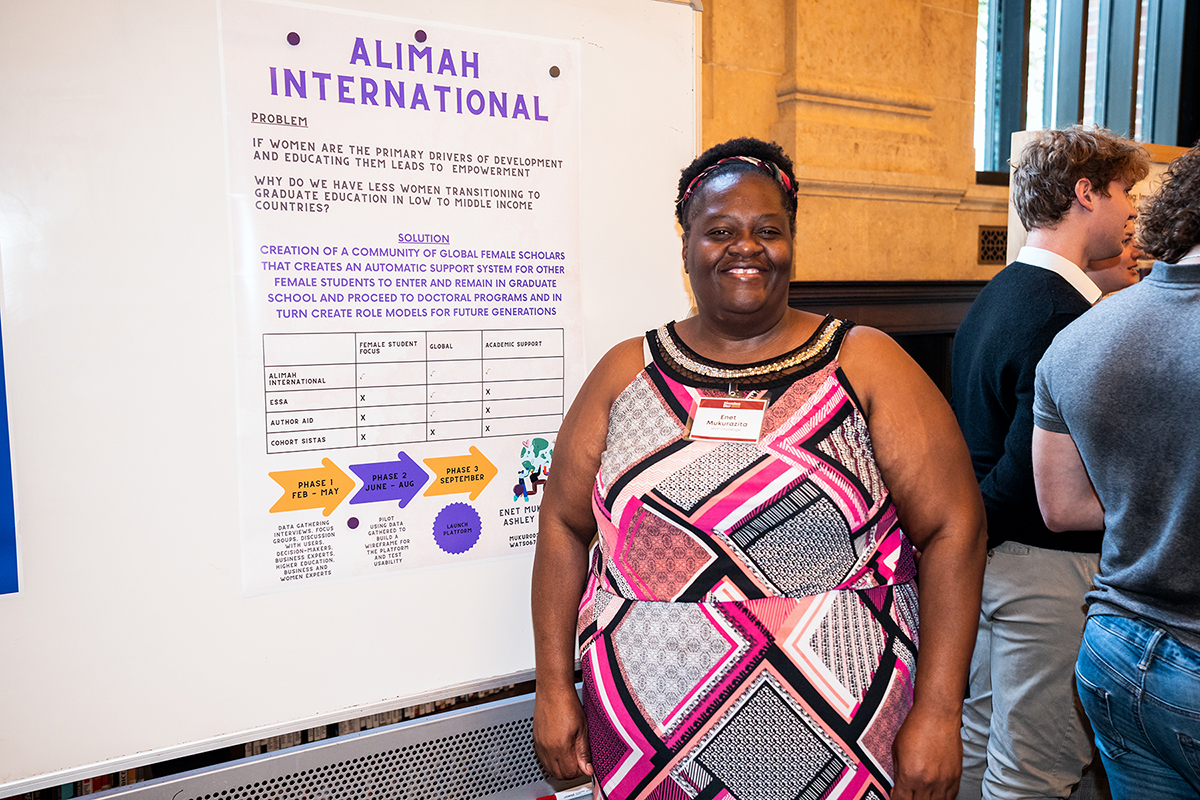
Enet Mukurazita. Photo credit: Craig Bares Photography.
Like Liu, Mukurazita underscored the critical role that the Toaster played in her project development. Halaas helped connect her to funding opportunities, and passed along resources she wouldn’t have known to look for on her own. This summer, she plans to utilize the Toaster’s technological resources to hold virtual focus groups as she works towards developing a pilot model of Alimah.
Finally, I also spoke with the team behind Telo: Walking Canes, this year’s MVP Challenge Audience Favorite winner. Co-Founders Steven Bleau, Morgan Kerfeld, and Beth Urbanski conceived Telo as U of M undergraduates. The project started in their Entrepreneurship in Action course and has since grown into a start-up company that aims to fill in the gaps in the mobility and rehabilitative product market.
This year at Founder’s Day, the group showcased their innovative Y Canes, which are designed to support more weight and improve walking symmetry compared to traditional canes.
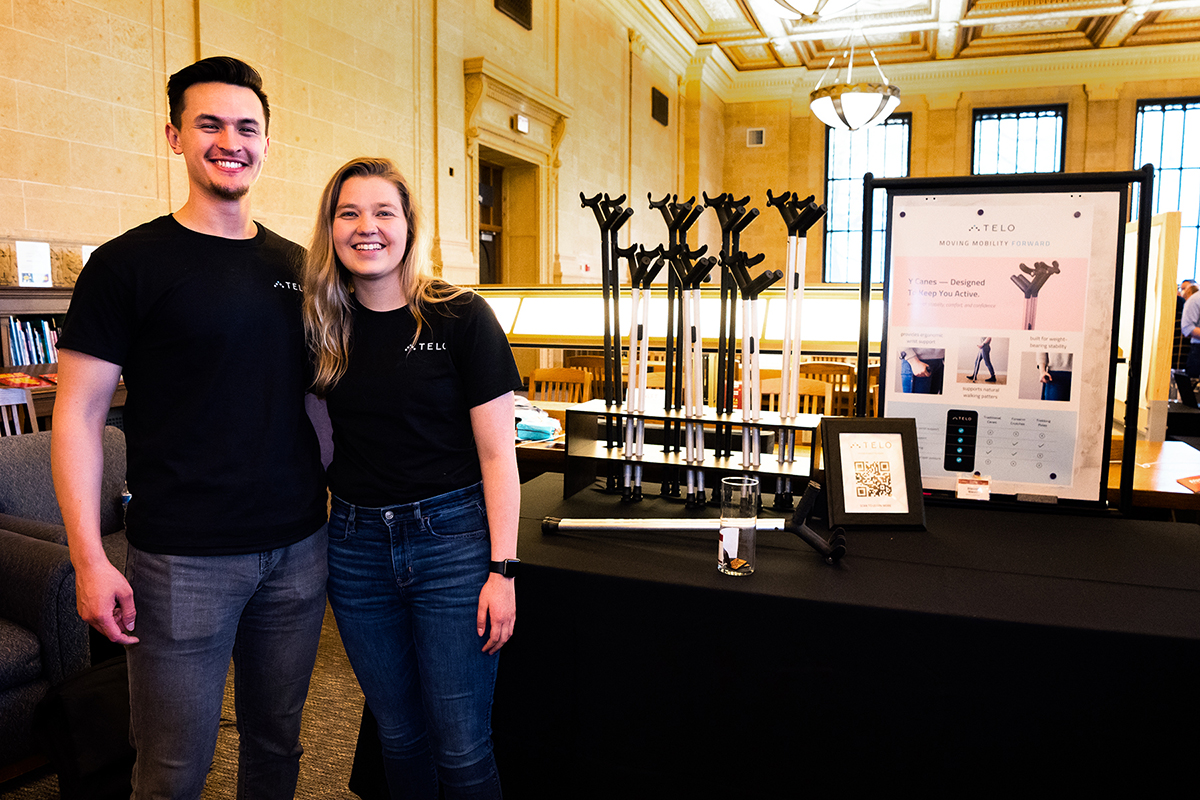
Telo: Walking Canes co-founders Steven Bleau and Morgan Kerfeld. Photo credit: Craig Bares Photography.
Kerfeld is now an M.B.A. candidate at the Carlson School of Management. She has used the Toaster throughout her U of M career — first as an undergraduate, and now as a graduate student and instructor. In 2021, the Telo team used one of the Toaster’s breakout spaces for an interview with Minnesota Public Radio. As a TA and instructor for classes like Social Venturing in Action and the Impact Lab, Kerfeld now brings her own students to the Toaster, familiarizing them with its resources and boundless collaborative potential.


